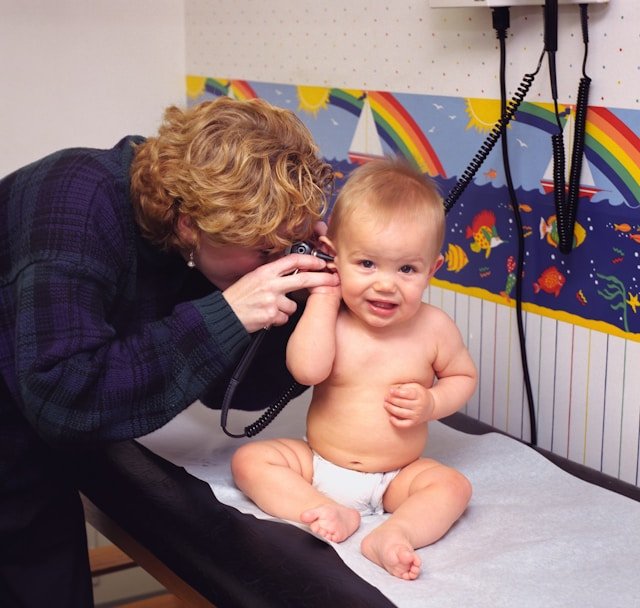Think of trying to acquire a new language while wearing earplugs. That is how a child with hearing impairment feels. When parents are informed that their child is deaf, they may feel extremely helpless. Although hearing loss is rare, hope is not scarce either. Through the help of advanced technology and early intervention, children can be alive, learn, and even interact with the surrounding environment, which they could not have considered before.

Types of Hearing Loss in Children
It is crucial to identify the type of hearing loss that a child has early on to determine the right kind of intervention that will be beneficial for the child.
Conductive hearing loss: This is due to problems in the outer or middle ear, usually as a result of infection or build up of fluid.
Sensorineural hearing loss: A permanent type of hearing loss that results from damage to the inner ear or the auditory nerve.
Mixed: A combination of both conductive and sensorineural hearing loss that needs both medical attention and hearing aids and speech therapy.
The Crucial Role of Early Intervention
The sooner a child gets fitted with hearing aids and receives the right kind of treatment, the better it is for them. Parents should also act fast to shop for hearing aids that will suit their child’s needs well. Hearing loss in children can be treated if diagnosed early, and this is what children with hearing loss stand to benefit from:

Improved Speech and Language Development
If the hearing impairment is diagnosed at an early age, children are able to develop language skills as any other child of their age. Hearing aids amplify sound so that children can communicate and listen to sounds that are important for speech, which is crucial. Hearing enables them to listen and speak, and thus it provides a strong foundation for oral and written language. If this is not provided, there are tendencies of experiencing language delay in the future in school as well as in life.
Better Academic Performance
Children who are treated with hearing aids at an early age are likely to have better performance in school. Through it, they are able to follow lessons, grasp instructions, learn, and even communicate with others. The enhanced communication skills brought about by early intervention lead to improved literacy, reading, and writing skills. Besides, these children are less likely to experience difficulties in the academic areas that require hearing, such as language arts.
Enhanced Social and Emotional Well-Being
Hearing enables children to communicate effectively in social activities, make friends, and maintain good interpersonal relationships. It increases the sense of belonging and emotional health among the people around them. This, if left untreated, may lead to social exclusion, and this may lead to frustration, low self-esteem, and anxiety.
Increased Independence and Self-Confidence
Children born deaf or with hearing loss at a young age should be provided with the necessary equipment, including hearing aids. This makes them strongly believe in their ability to handle whatever comes their way at home, school, or when interacting with others. This independence increases their morale and makes them free to wander and discover without feeling missing a vital sound or conversation.
Children must be diagnosed with hearing loss early to ensure they receive the proper treatment. Hearing aid intervention at an early age enhances communication, academic performance, and emotional well-being. If you think your child has hearing problems, seeking early intervention is crucial for the child’s development.
